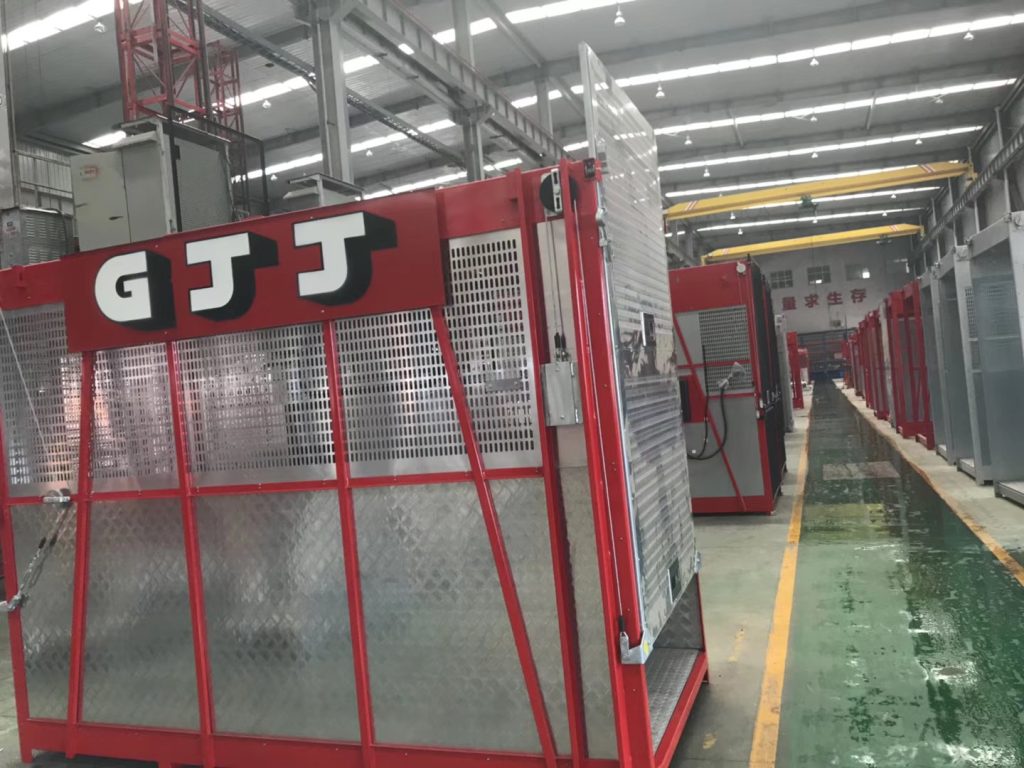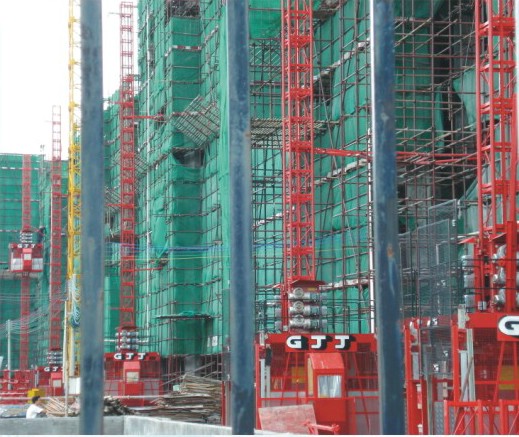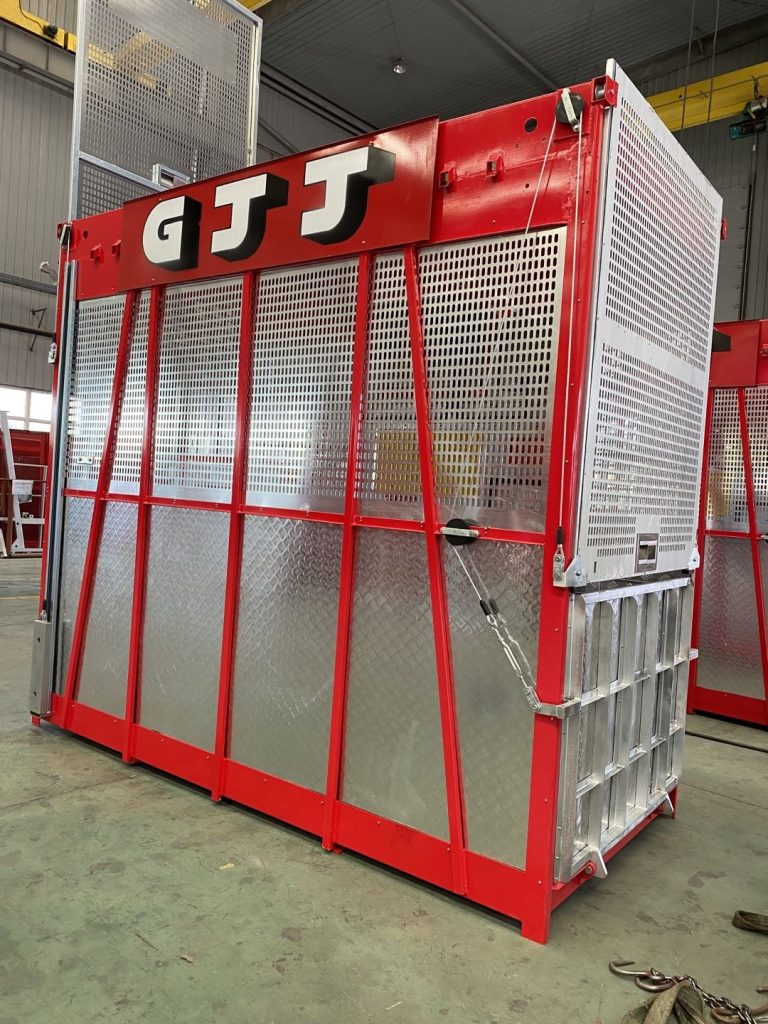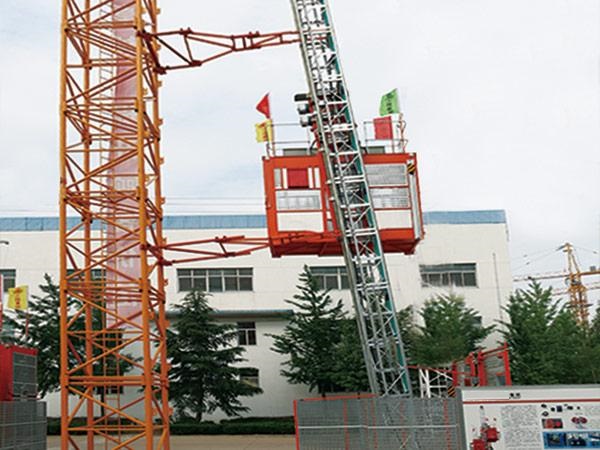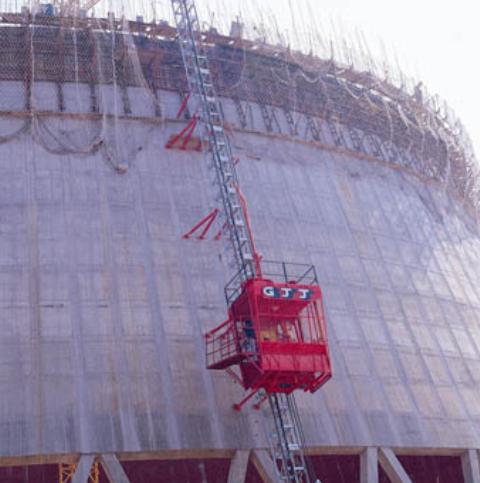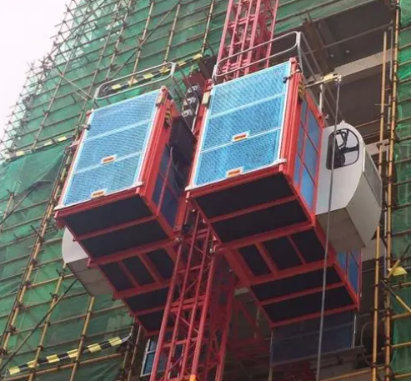When it comes to vertical transportation on construction sites, choosing the right type of hoist isn’t just a technical decision — it’s a strategic one. Whether you’re managing a high-rise build or planning a facility upgrade, understanding the differences between temporary and permanent construction hoists is crucial for efficiency, cost control, and long-term usability. Let’s break it down beyond the obvious.
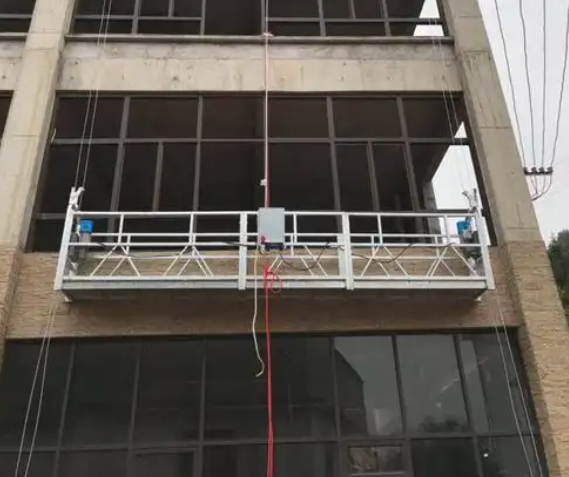
What Is a Temporary Construction Hoist?
A temporary construction hoist is purpose-built for projects that demand mobility, adaptability, and speed. Installed for the construction phase only, these hoists are designed to transport workers, tools, and materials up and down structures that are still in progress.
Key features of temporary hoists:
- Modular setup: Quick installation and dismantling without permanent alteration to the building.
- Flexibility: Can be adjusted in height and capacity as the building grows.
- Cost-effective for short-term use: Pay for the duration you need without investing in permanent infrastructure.
- Relocation-friendly: Units can be reused across multiple projects.
- Typical applications: skyscrapers under construction, bridge projects, and large renovation works.
What Is a Permanent Construction Hoist?
In contrast, a permanent construction hoist (often evolving into a service elevator or freight lift) is integrated into the building’s design from the beginning. It serves not just the construction team, but the end-users, whether that’s building maintenance crews, tenants, or industrial operators.
Key traits of permanent hoists:
- Custom-engineered: Built to meet specific building codes, load capacities, and long-term safety standards.
- Seamless integration: Encased within elevator shafts or dedicated structures.
- Durability: Designed for decades of continuous operation.
- Higher initial investment: But it adds permanent value to the property.
- Common uses: commercial office buildings, hospitals, manufacturing plants, warehouses.
Temporary vs. Permanent: The Real Decision Factors
Choosing between the two isn’t about which hoist is “better” — it’s about what your project demands:
| Temporary Hoist | Permanent Hoist | |
| Usage Duration | Short-term (project phase) | Long-term (lifetime of building) |
| Cost Structure | Rental or short-term lease | Capital investment |
| Flexibility | Highly adjustable | Fixed once installed |
| Compliance | Construction regulations | Building codes and operational standards |
| Impact on Building Design | Minimal, reversible | Integral, planned during design |
Why the Right Choice Matters
Installing the wrong type of hoist can lead to significant cost overruns, project delays, and even legal complications. For example, trying to retrofit a permanent lift late in a project can trigger major structural changes, while overinvesting in a permanent system for a temporary site could sink your project budget unnecessarily.
Early planning with architects, engineers, and lift specialists is critical to align the hoist solution with your project’s goals.
Temporary and Permanent Hoists Each Have Their Place
In modern construction, temporary hoists fuel progress — they move teams and tools to the top quickly, keeping timelines on track. Meanwhile, permanent hoists serve the life of the building, ensuring ongoing efficiency and accessibility.
Understanding the core differences allows project managers, developers, and contractors to make decisions that maximize both short-term performance and long-term asset value.
Construction Hoist for Sale
From the time of our founding in 2006, CPTC – Chongqing Clipper Industry Co., Ltd. Of China has focused exclusively on the Construction engineering equipment and spare parts. Including complete construction hoist, tower crane, gondola and spare parts. We are supplying spare parts of GJJ, ZENIT, HERCULES, ORBIT, CREDO, LIFTEC, VERTILIFT, A.T.L., BAODA, ZOOMLION, XCMG, SANY and so on. Our products including, GEAR RACK, PINON, SAFETY DEVICE, MOTOR, GEARBOX, ROLLER, MASTER SECTION, TIE IN, CABLE, LIMIT SWITCH, FIXING AGNLE, BOLT, SLEWING RING, INVERTER…. We have developed a unique expertise and knowledge of our products. Our technical knowledge and foundational support, combined with the high quality of our product, has made CPTC one of the most successful in the construction equipment industry.

